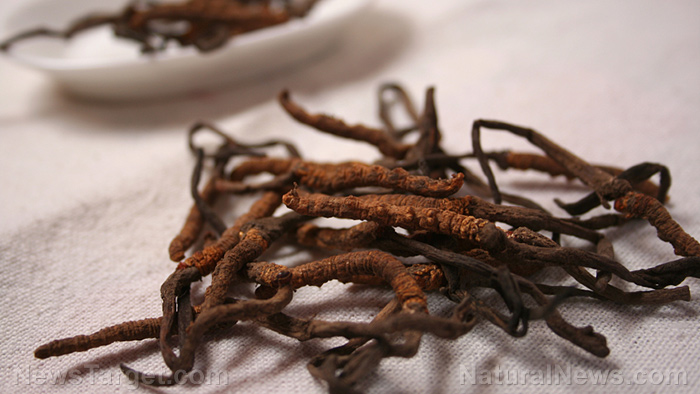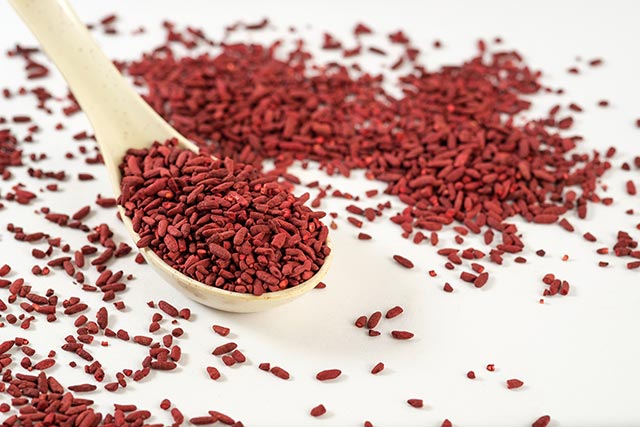Drinking wine in moderation can improve “good” cholesterol levels
11/27/2019 / By Evangelyn Rodriguez

There are plenty of studies heralding the benefits of drinking moderate amounts of red wine. Red wine is an alcoholic beverage produced from red grapes which, aside from being a healthy superfood, contain plenty of beneficial phytonutrients. In a study published in the journal Nutrition Research, researchers from Spain examined the associations of moderate alcohol intake and the type of alcoholic beverage with metabolic and inflammatory biomarkers. They found considerable evidence that drinking red wine — and even beer — in moderation can help reduce inflammation and increase good cholesterol levels.
The effects of moderate alcohol intake on inflammation and cardiometabolic markers
Scientific evidence of the association between moderate alcohol intake and blood cardiometabolic marker levels is inconsistent and difficult to interpret. This relationship is the subject of numerous studies because of its potential implications for disease prevention.
In the present study, the researchers hypothesized that moderate alcohol consumption is linked to lower levels of inflammation markers and higher levels of protective cardiometabolic markers. To test this hypothesis, they conducted an observational, cross-sectional study involving 143 healthy adults aged 55 or older.
They divided the participants into three groups: the abstainers and occasional consumers of alcoholic drinks (ABS), the beer consumers (BEER), and the mixed beverage consumers (MIXED). They used interviewer-administered questionnaires to collect information on alcoholic beverage intake frequency, food frequency, physical activity, socioeconomic status, disease and medications and other health-related habits.
The researchers found that high-density lipoprotein cholesterol (HDL) and sP-selectin were significantly higher in the MIXED group than in the ABS group. Meanwhile, adiponectin was higher in the MIXED group than in the BEER group. HDL is often called “good” cholesterol because it helps remove other forms of cholesterol from the blood. Having high HDL levels helps lower the risk of heart disease.
Soluble platelet selectin or sP-selectin is a cell adhesion molecule that can be found on the surface of cells that line the blood vessels. It is a useful biomarker for cardiovascular disease, specifically for atherosclerosis and inflammation. Adiponectin, on the other hand, is a protein specific to fat cells. According to studies, this protein plays a role in the development of insulin resistance and atherosclerosis. People with obesity and diabetes have lower levels of adiponectin than healthy people.
The researchers also found that all the alcohol consumers had higher mean platelet volume values than those in the ABS group. Linear regression analyses showed that HDL, sP-selectin and adiponectin were positively associated with wine intake, while mean platelet volume was associated with beer intake.
Based on these results, the researchers concluded that moderate alcohol intake (mostly wine) can benefit heart health by increasing HDL and adiponectin levels.
The health benefits of red wine
Drinking red wine is traditionally viewed as beneficial for a person’s health. In fact, in medieval times, monks regularly consumed this beverage because they believed it could prolong their lives. Today, research has indicated that this may be true — but only if drinking is done in moderation.
According to the latest Dietary Guidelines for Americans (2015-2020), adult women should consume no more than one drink per day (five fluid ounces of wine containing 12 percent alcohol) while adult men should not exceed two drinks. If these guidelines are followed, both men and women can enjoy substantial benefits, such as:
- Higher intake of resveratrol, a health-promoting compound found in the skin of grapes
- Improved heart health and liver health
- Healthier gut microbiota
- Increased omega-3 fatty acids in the blood
- Decreased cardiometabolic risk
- Reduced blood pressure
- Protection from brain damage
- Lower risk of vision loss, dementia and different types of cancer
- Reduced risk of depression
Despite being an alcoholic drink, red wine can be a healthy beverage when not consumed excessively. People who do not like red wine or alcoholic drinks can still get the same benefits by eating fresh, organic red grapes, blueberries, cranberries and other food sources of resveratrol.
Sources include:
Tagged Under: alcohol consumption, beer, cholesterol, food cures, food is medicine, functional food, heart disease, heart health, natural cures, natural medicine, phytonutrients, prevention, red wine, research
RECENT NEWS & ARTICLES
COPYRIGHT © 2017 RESEARCH NEWS




















